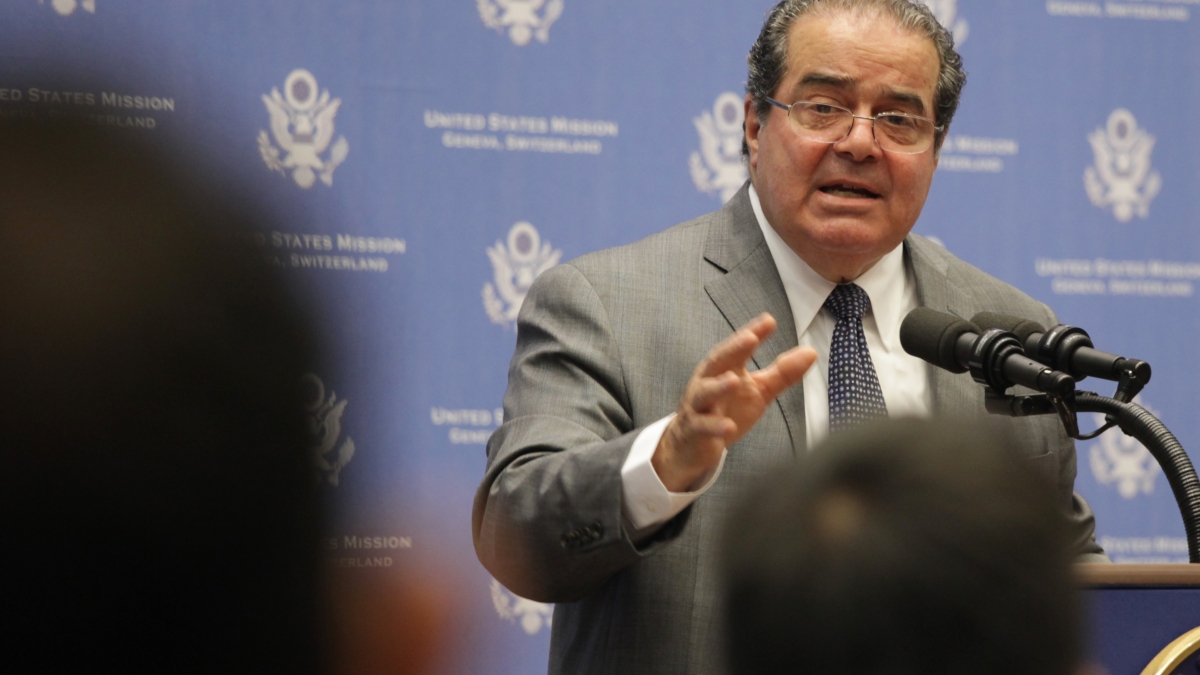Antonin Scalia, who died Saturday at the age of 79, is being remembered as a brilliant legal scholar who reinvigorated and redefined the conservative wing of the federal judiciary from his perch as an associate justice on the U.S. Supreme Court.
Erik Luna, a Foundation Professor of Law in the Sandra Day O'Connor College of Law at Arizona State University, spoke with ASU Now about the legacy of the larger-than-life conservative conscience of the Supreme Court.
Question: Judge Richard PosnerPosner, a respected jurist, is a judge on the United States Court of Appeals for the Seventh Circuit and a senior lecturer at University of Chicago Law School. has called Antonin Scalia the most influential justice of the past quarter-century. What made him so influential?
Answer: Justice Scalia was perhaps the most influential voice among the Supreme Court’s conservative voting bloc, though he frequently confounded the political labels.
He was a legendary interlocutor and a first-rate legal wordsmith, and, as a result, students of the Court were drawn to his voice in oral arguments and the words of his opinions, even when in dissent. Most of all, Justice Scalia was a source of intellectual inspiration for several generations of lawyers, becoming a near cult figure in conservative legal circles.
Q: Scalia's judicial philosophy was originalism. Explain what that is and how it has now gained prominence outside of the courts.
A: Generally speaking, originalism is the belief that the Constitution should be interpreted consistent with the intent of those who drafted and ratified the original document and its later amendments. Through his body of work, Justice Scalia made originalism a reputable, if not at times dominant, method of constitutional interpretation. He and his acolytes in the legal profession presented a powerful challenge to other interpretive methodologies, especially the idea of a “living” Constitution. In several areas of the law, one can say that originalism has won the day, due in no small part to Antonin Scalia.
Q: Scalia had an amazing way with words. Examples of his colorful language abound, but a recent instance came in the summer of 2015 when he called the court's logic in the most recent Affordable Care Act decisionThe Court ruled on King v. Burwell on June 25, 2015. Scalia wrote a scathing dissent. "jiggery pokery" and "pure applesauce." Has there ever been such an interesting writer on the court? Such an interesting personality?
A: Justice Scalia lies in the pantheon of American legal writers. Perhaps Justice William O. Douglas could turn a better phrase, but no one compares to Scalia in terms of the sheer intensity of his prose.
Q: What will be his legacy? What did American jurisprudence lose on Saturday?
A: Justice Scalia’s passing is a great loss for American jurisprudence in general and for the conservative legal movement in particular. In law, he most definitely was a giant.
Above photo by United States Mission Geneva, via Wikimedia Common
More Law, journalism and politics

ASU's Carnegie-Knight News21 project examines the state of American democracy
In the latest project of Carnegie-Knight News21, a national reporting initiative and fellowship headquartered at Arizona State University’s Walter Cronkite School of Journalism and Mass Communication…

Arizona secretary of state encourages students to vote
Arizona Secretary of State Adrian Fontes looked right and left, taking in the more than 100 students who gathered to hear him speak in room 103 of Wilson Hall.He then told the students in the Intro…

Peace advocate Bernice A. King to speak at ASU in October
Bernice A. King is committed to creating a more peaceful, just and humane world through nonviolent social change.“We cannot afford as normal the presence of injustice, inhumanity and violence,…
